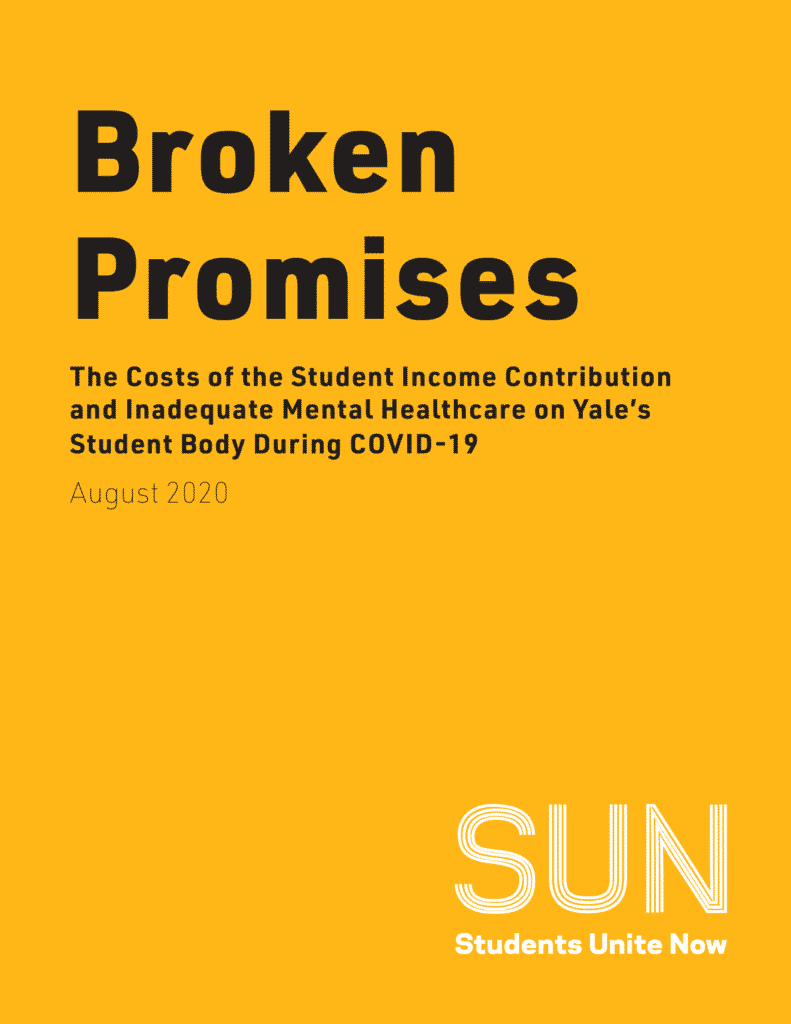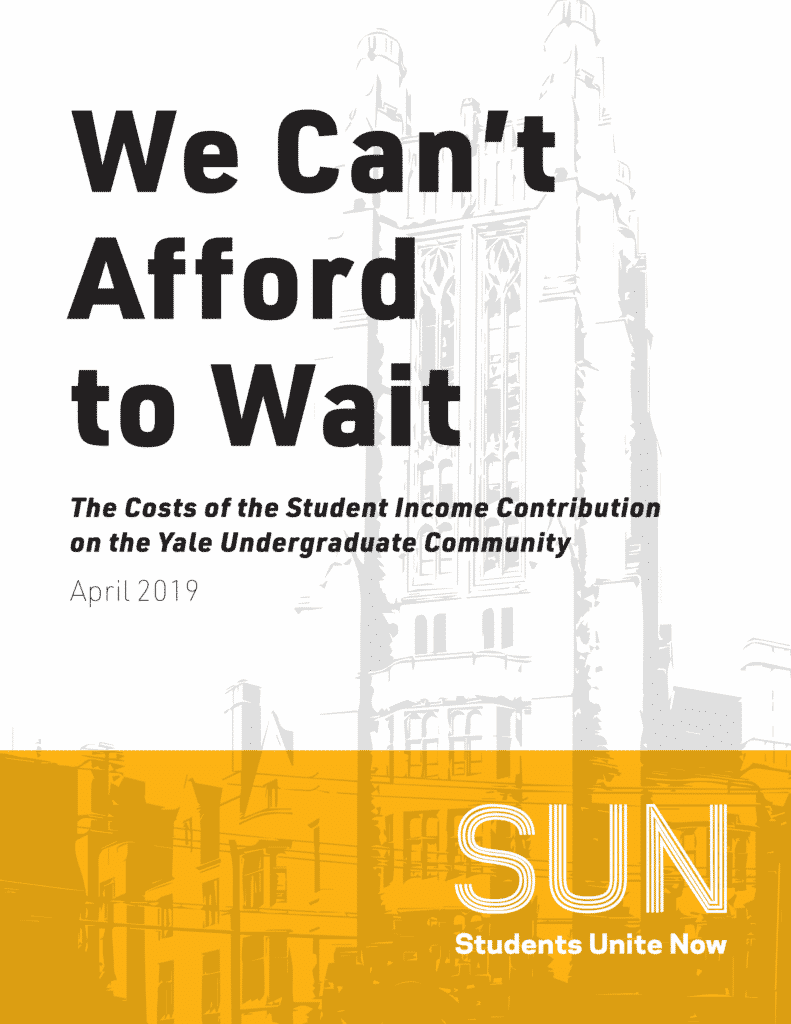OUR REPORTS
"What Should Yale Be For?"
2023 Zine on the Disproportionate Effects of Gaps in Financial Aid
and Healthcare on Low-income Students and Students of Color
After a decade of undergraduate organizing for better financial aid, Yale has stopped billing low-income students a portion of the Student Income Contribution/Student Effort.
Yale should continue to follow students’ lead: since our 2020 Report, students have sounded the alarm about Yale’s inadequate and slow healthcare and Yale’s failure to cover “indirect” necessary educational expenses. Both problems are still exacerbating a two-tier undergraduate experience along lines of race, class, and ability.
Take the survey and reflect — who is Yale really for? And tell us, what should Yale be for?
"Broken Promises"
2020 Report on the Costs of Inadequate Mental Healthcare and the
Student Income Contribution on Yale's Student Body During COVID-19
Yale has upheld racial and economic inequalities through its policies and its broken promises. COVID-19’s unequal toll on low-income people of color has only exacerbated these inequalities.
This report outlines how the SIC has become more inequitable if not altogether impossible while people of color bear the brunt of lost income and scarce job opportunities. This report also outlines how the pandemic’s unprecedented isolation, grief and anxiety exacerbates the health consequences of Yale’s failure to provide timely mental healthcare and meet student therapist preferences.
We call on Yale to rise to the urgency of the moment by changing policies it can easily afford to improve. Will it? Or will a $30 billion institution leave low-income students and students of color to face the consequences of inequalities it helped create?
"We Can't Afford to Wait"
2019 Report on the Costs of the Student Income Contribution
on the Yale Undergraduate Community
Yale tries to project an image of inclusion and diversity, but by refusing to eliminate the Student Income Contribution, it breaks the promise of full financial aid and perpetuates a two-tier undergraduate experience.
This report explores the hidden costs of the SIC on undocumented students with DACA, international students, students in STEM, and students seeking mental healthcare. This report also outlines how the SIC works and why Yale can easily afford to eliminate it.
Students are on financial aid for a reason: our families cannot afford the full price of our education. How can it be true that Yale can’t afford to eliminate the SIC, but we can afford to pay it?


